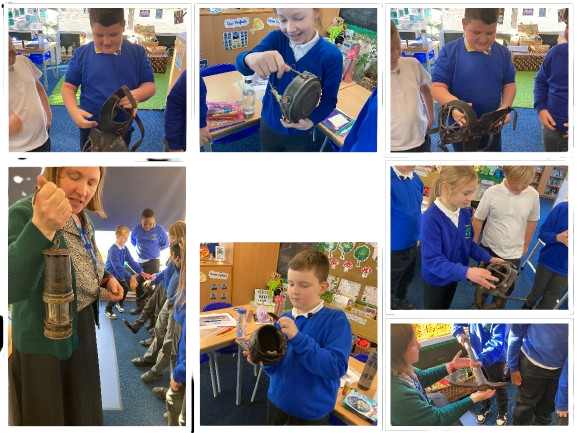Intent
At Larkspur Community Primary School, our intent for the History curriculum is to provide an engaging and comprehensive learning experience that develops a deep understanding of local, British and global histories, helping pupils build a strong sense of identity and an appreciation of their heritage. Rooted in our curriculum drivers — Learning for Life, Believe You Can, and Everyone Belongs — our History curriculum nurtures curiosity, independence and resilience by connecting past events to real-life contexts and encouraging pupils to reflect, question and think critically. We promote self-belief and aspiration by supporting pupils to take risks in their historical thinking, persevere with challenging ideas and recognise their potential as capable historians. Inclusivity is central to our approach, ensuring diverse voices and experiences are represented and valued, helping pupils build empathy, respect and a deeper understanding of the world around them.
We seek to:
- Enrich Historical Understanding: Ensure that pupils acquire a chronological understanding of events and developments in British and world history, emphasising key themes such as social chronology, change, and legacy.
- Foster Curiosity: Encourage children to ask questions and develop an inquisitive mindset about historical events, figures, and contexts.
- Promote Cultural Awareness: Celebrate diversity by integrating a wide array of historical perspectives, helping pupils understand different cultures and their contributions to both local and global history.
- Develop Skills: Equip pupils with the ability to analyse sources, evaluate evidence, and construct coherent arguments, thus enhancing their overall literacy and analytical skills.
- Connect with the Local Community: Engage students in understanding local history, allowing them to see the relevance and impact of historical events on their community and lives.
- Encourage Lifelong Learning: Instil a sense of historical empathy and a desire for lifelong learning about history through engaging and varied lessons.
Implementation
To achieve our intent, we rigorously implement a well-structured History curriculum that is inclusive, stimulating, and aligned with the National Curriculum standards. Our approach encompasses the following strategies:
- Curriculum Design: Our knowledge-rich curriculum is sequenced to build upon prior learning, ensuring students connect new information with previously acquired knowledge. Key concepts, such as chronology, change, cause, consequence and legacy are woven throughout the curriculum. British history is taught in chronological order across Key Stage 2 with the exception of Stone Age to iron age which is taught in year 6 when the children will be better equipped to deal with the complex terminology and timelines.
- Enquiry-Based Learning: We follow an enquiry-based curriculum where each topic has an overarching question, and each lesson is led by a specific inquiry question that focuses the lesson. This methodology encourages students to engage actively with their learning, fostering a deeper understanding of historical contexts.
- Engaging Lessons: We employ a range of teaching strategies, including enquiry-based learning, hands on activities, and the use of primary sources to make history tangible and relatable. Lessons are designed to be interactive, utilising role-play, drama, and collaboration to engage students actively in their learning.
- Retrieval Practice: Retrieval practice is embedded in every lesson, beginning with students answering the enquiry question from the previous lesson. Further retrieval activities are utilised throughout lessons to ensure knowledge consolidation and reinforce learning.
- Historical Key Skills: Historical key skills are explicitly linked to every lesson’s enquiry question, ensuring full coverage of historical skills across every year group. This approach enhances skill development and gives students the opportunity to apply these skills in a meaningful context.
- Use of Primary Sources: Pupils are encouraged to work with a range of authentic sources such as objects, photographs, and written accounts. This develops critical thinking, invites curiosity, and supports well-reasoned interpretations.
- Inclusive and Adaptive Teaching: We ensure that our lessons are tailored to meet the diverse needs of all learners, providing varied levels of scaffolding and support to encourage every child to participate thoroughly and benefit from the curriculum.
- Assessment and Feedback: Formative assessments are integrated into our teaching practices, allowing for continuous monitoring of pupil progress and allowing teachers to adapt teaching. Regular feedback helps to guide pupils in their learning journey, setting clear goals for improvement.
- Extracurricular Opportunities: We organise trips to local historical sites, museums, and workshops, as well as inviting guest speakers, to enrich students’ understanding of History beyond the classroom.
Impact
The impact of our History curriculum can be measured through several key indicators:
- Knowledge and Understanding: Pupils demonstrate a secure understanding of fundamental historical concepts and can articulate them clearly, both verbally and in writing. They know key dates, events, and figures relevant to the topics studied and can explain their significance.
- Critical Thinking: Students exhibit the ability to analyse historical sources thoughtfully, questioning their reliability and perspective. They can independently draw conclusions and articulate their reasoning with confidence.
- Cultural Awareness: Pupils show an increased awareness and appreciation of diverse histories and cultures, demonstrating respect for the perspectives of others. They are able to discuss historical narratives from multiple viewpoints, fostering inclusivity and understanding.
- Engagement and Enthusiasm: Our assessments, observations, and feedback from pupils reveal high levels of engagement and enthusiasm for History. Students consistently exhibit a desire to learn more, often initiating discussions beyond the curriculum.
- Rigorous Assessment: Through rigorous assessment of non-negotiable knowledge, alongside ongoing monitoring, we can assess the impact of learning to guide and adapt future practice and planning effectively. This constant adaptation of the curriculum ensures that we meet the evolving needs of our students, allowing for a more personalised learning experience.
- Readiness for Future Learning: Throughout their time at Larkspur, pupils develop a strong foundation of historical knowledge that prepares them effectively for further learning in secondary education. This knowledge is built systematically, allowing for a seamless transition to more advanced historical studies.
In summary, at Larkspur our History curriculum fosters a love for learning and prepares our students to be informed, responsible, and empathetic global citizens.
In the Classroom
Local History
At Larkspur Primary School we base our History topics around local history. Local history helps children make sense of their immediate world. Good local history involves enquiries that allow children to investigate, drawing on their previous historical knowledge and understanding.

In Early Years they begin to make sense of their own life-story and family’s history.
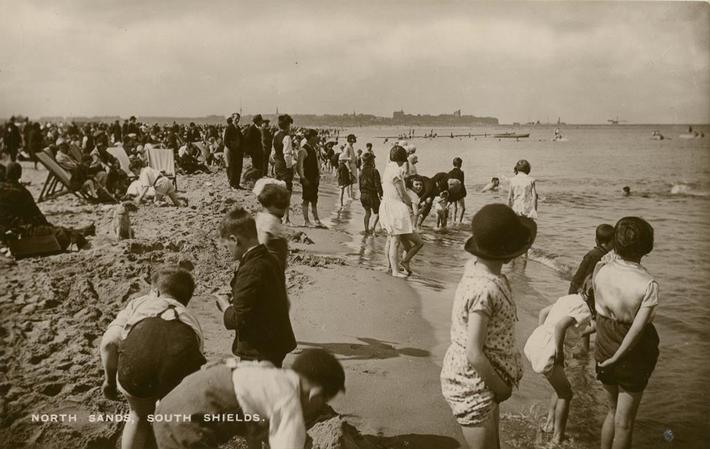
In Year 1 we use local links to the seaside. We learn about how seaside holidays have changed over time. They learn about changes around the beach and what people did then and what they do now.
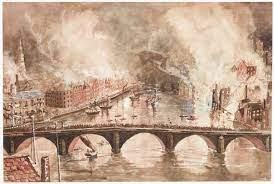
In Year 2 we learn about the Great fire of Gateshead which began between midnight and 1am on 6th October 1854. The fire lasted for one day. Fifty-three people died that night and over five hundred were injured. At least eight hundred homes and businesses were lost.
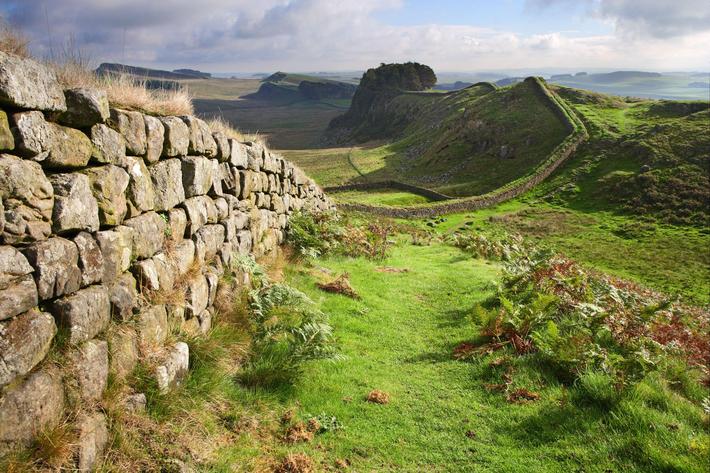
In Year 3 we learn about the Romans. We have lots of local history about the Romans. We have Hadrian’s Wall, Arbeia Roman Fort and Segedunum Roman Fort.
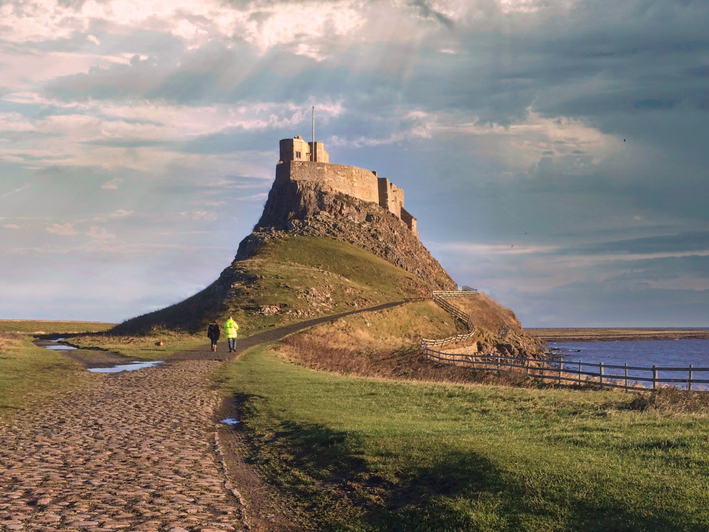
In Year 4 we learn about Vikings. One of the things we learn about is an attack on Lindisfarne by invading Vikings from Norway.
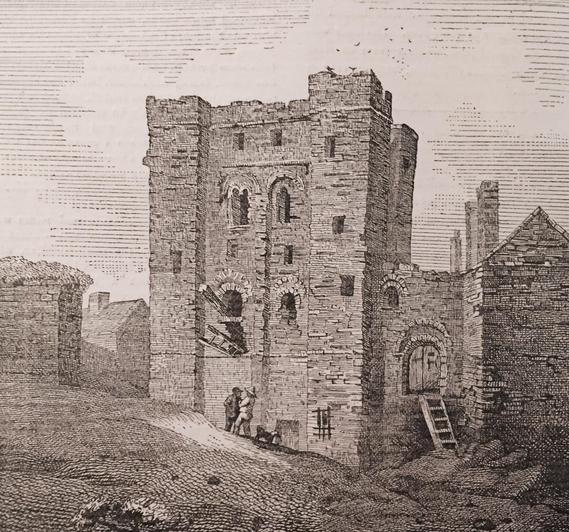
In Year 5 one of our topics is Crime and Punishment.
There has been a castle at this site on the banks of the river Tyne since the Romans built Pons Aelius in around 193CE. The New Castle was built in 1172. Some crimes were punished by prisoners being hung, drawn and quartered.
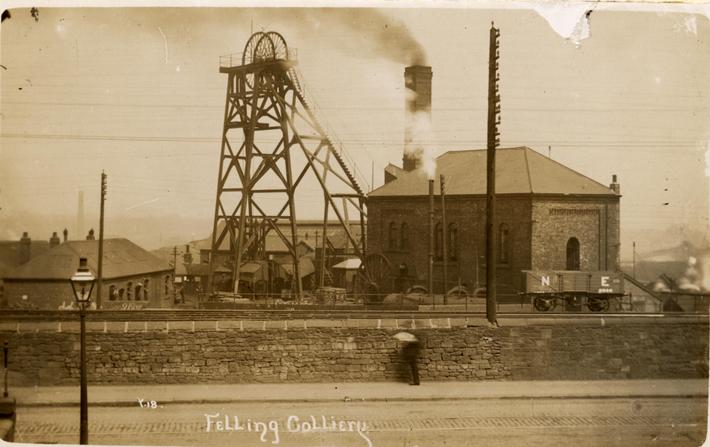
One topic Year 6 learn about is Felling Pit Disaster. This is very local to us. In 1812 there was an explosion in the Felling mine. This is the mining disaster that inspired local inventor, Sir Humphry Davy to invent the Davy lamp.
Working With Artefacts
In school we understand the importance of artefacts in history. Handling an artefact allows pupils to use their senses, develop questioning and problem-solving skills, strengthen their understanding of a period, and empathise with people from the past.
Year 2 have been learning about the Great Fire of Gateshead. They were amazed by the Victorian iron.
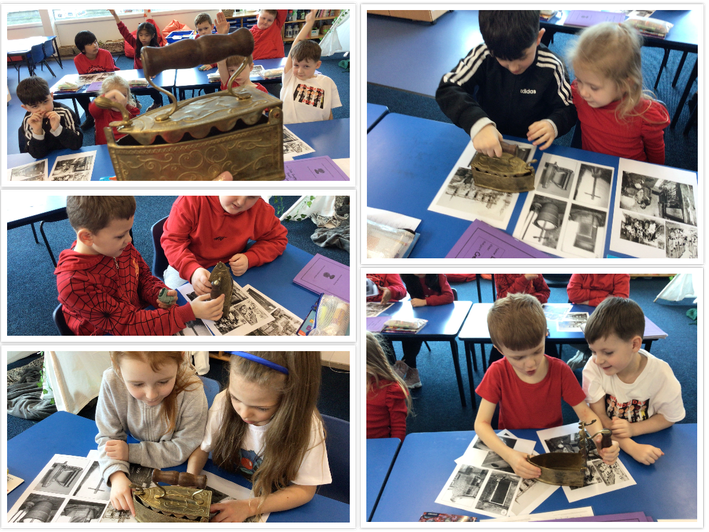
Elder class have been learning about The Felling Pit Disaster. They were looking at different items that miners would have used in the 1800’s.
